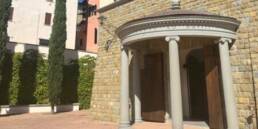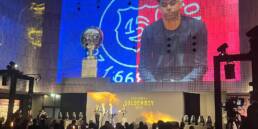Simplicity, honesty, and a good dose of empathy, which, however, footballers must never confuse with friendship. The Basque coach is the one who sends you to the bench while looking you straight in the eyes. And that’s it, because he doesn’t need to give you an explanation. He doesn’t even have much desire to, convinced that it should already be clear to all his men that when the coach makes a decision, he does it for the good of the team, and there’s no need to repeat it every time. So straightforward and transparent to seem gruff, but equally ready to help you in difficult moments.
A true school of thought and action admired throughout Europe. The recent victory of Arsenal, which snatched the Community Shield from Manchester City, the champions of England and Europe, has put Mikel Arteta back in the spotlight. After last year’s success, he’s expected to confirm his position this season. And there’s no denying that beating his mentor, Pep Guardiola, is the beginning he had dreamed of for this new campaign. Born 41 years ago in San Sebastián, the Gunners’ coach is the standard-bearer of an entire movement that is conquering the old continent, with its headquarters in Gipuzkoa, the province of the Basque Country, of which Donostia (San Sebastián in Basque) is the capital. Also hailing from this same region are Xabi Alonso (Tolosa), the king of the Europa League Unai Emery (Hondarribia), Imanol Alguacil (Orio), Julen Lopetegui (Asteasu), and Andoni Iraola (Usurbil), coaches who come from a convincing season leading their respective teams.
And, to tell the whole story, Jagoba Arrasate (Berriatua) also came through the ranks of Real Sociedad’s youth academy, but, just like the wise José Luis Mendilibar (Zaldibar), he’s originally from Bizkaia, the province associated with Bilbao. Similarly, the successful Basque coaching family also includes Ernesto Valverde and Didier Deschamps. Both with an asterisk. The coach of Les Bleus, in fact, was born in Bayonne, a stronghold of the French Basque Country, while Txingurri (ant in Basque) has Extremaduran blood, even though he moved to Vitoria with his parents when he was just seven months old. And it’s for this reason that even the current coach of Athletic Club Bilbao, who won two La Liga championships with Barcelona (and would have won the third if he hadn’t been dismissed despite his Barça being first in the standings), can and should be considered a true Basque.
From Mendilibar’s 62 years to Iraola’s 40, there are four generations of Basque coaches born within a radius of less than 100 kilometers, and, as Mikel Etxarri, the coach of Euskadi (the Basque national team) and mentor to many of them, puts it, “they don’t do anything special. I believe that if there’s one aspect that unites all these guys, it’s hard work. We are a people educated in labor.” Mendi, after taking over Sevilla last March when they were deep in the relegation zone, managed to lead them to the Champions League thanks to their victory in the Europa League final against José Mourinho’s Roma, and after eliminating, in his European debut, two other European giants: Juventus and Manchester United. Speaking of continental competitions, Arrasate, a physical education teacher on leave, brought Osasuna back to Europe (Conference League) 16 years after the last time. Imanol’s Real Sociedad finishing fourth, on the other hand, is no longer a surprise, just as everyone was sure that Iraola would do well leading Rayo Vallecano. However, no one could have imagined that the obrero club from Madrid would flirt with European placements until the end. It’s no coincidence that Bournemouth decided to bring him to the Premier League, adding him to the already long list of Basque coaches in the English top flight. Besides Arteta, Emery, and Lopetegui, who also teach their lessons every damn Sunday from their posts in Birmingham and Wolverhampton, Xabi Alonso came up through Real Sociedad’s youth academy, played for some of Europe’s most important clubs (Liverpool, Real Madrid, and Bayern Munich), and was coached by the best managers in the old continent (Rafa Benitez, José Mourinho, Carlo Ancelotti, and Pep Guardiola, in addition to Luis Aragonés and Vicente Del Bosque in the national team). Alonso, however, began his coaching career on a top-level bench (after starting over in the txuri urdin youth sector) in Leverkusen, managing to take Bayer to the Europa League semifinals after taking over midseason. There are very few doubts about him: he’s one of the main candidates, in fact, to succeed Ancelotti on the Real Madrid bench.
Cast your preference on Tuttosport.com
Related Posts
May 28, 2025
Golden Boy 2025: the journey begins!
December 17, 2024


